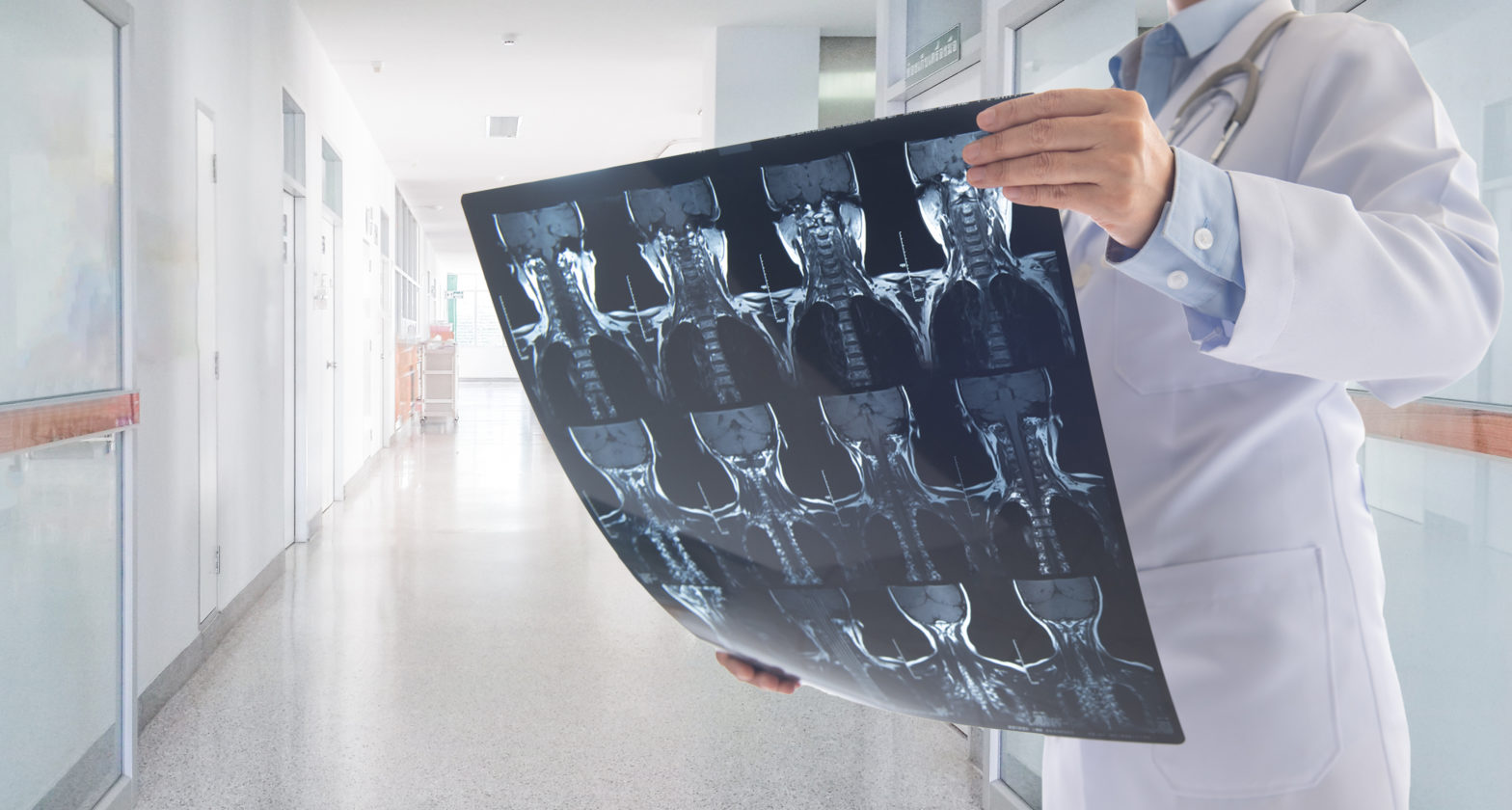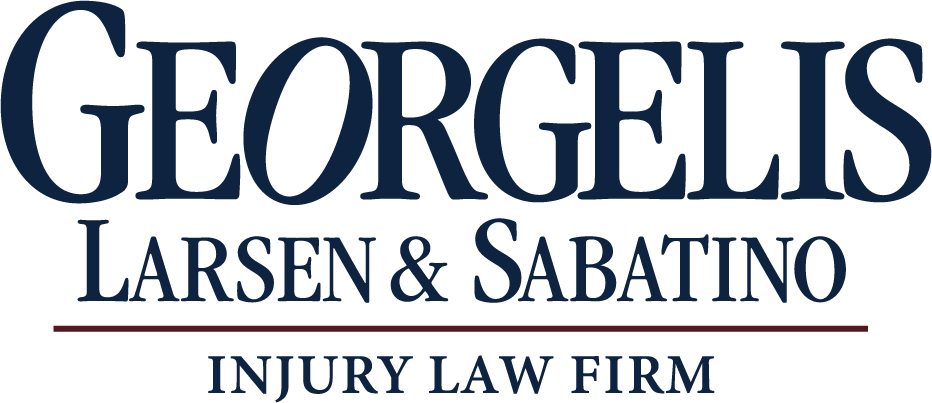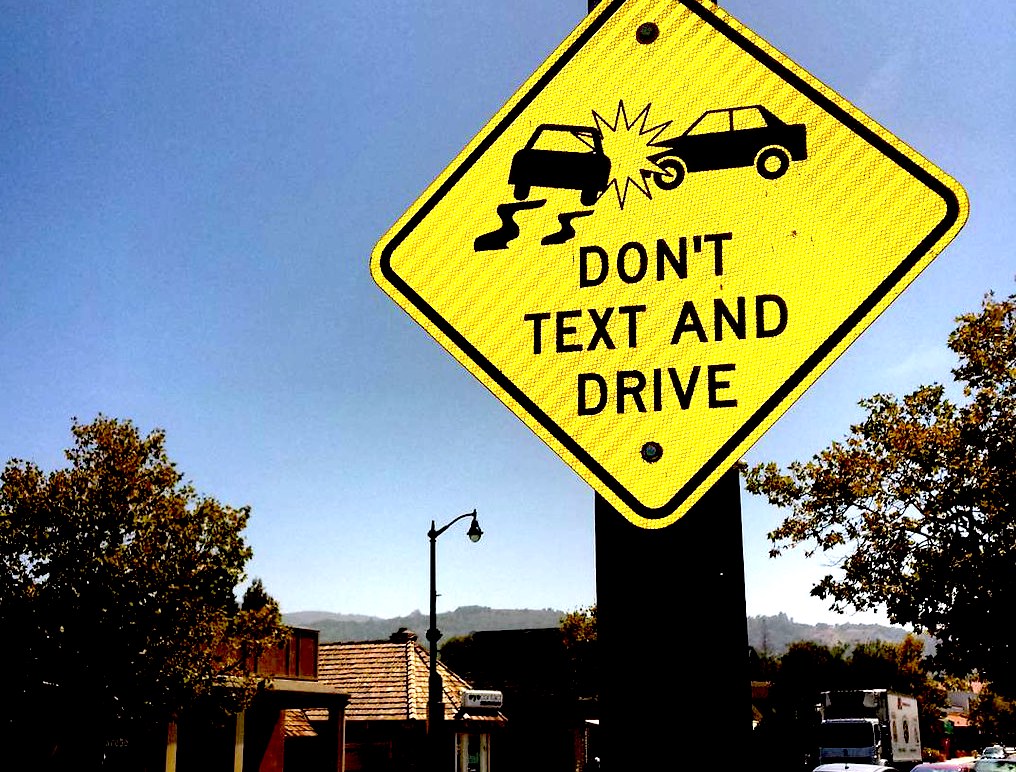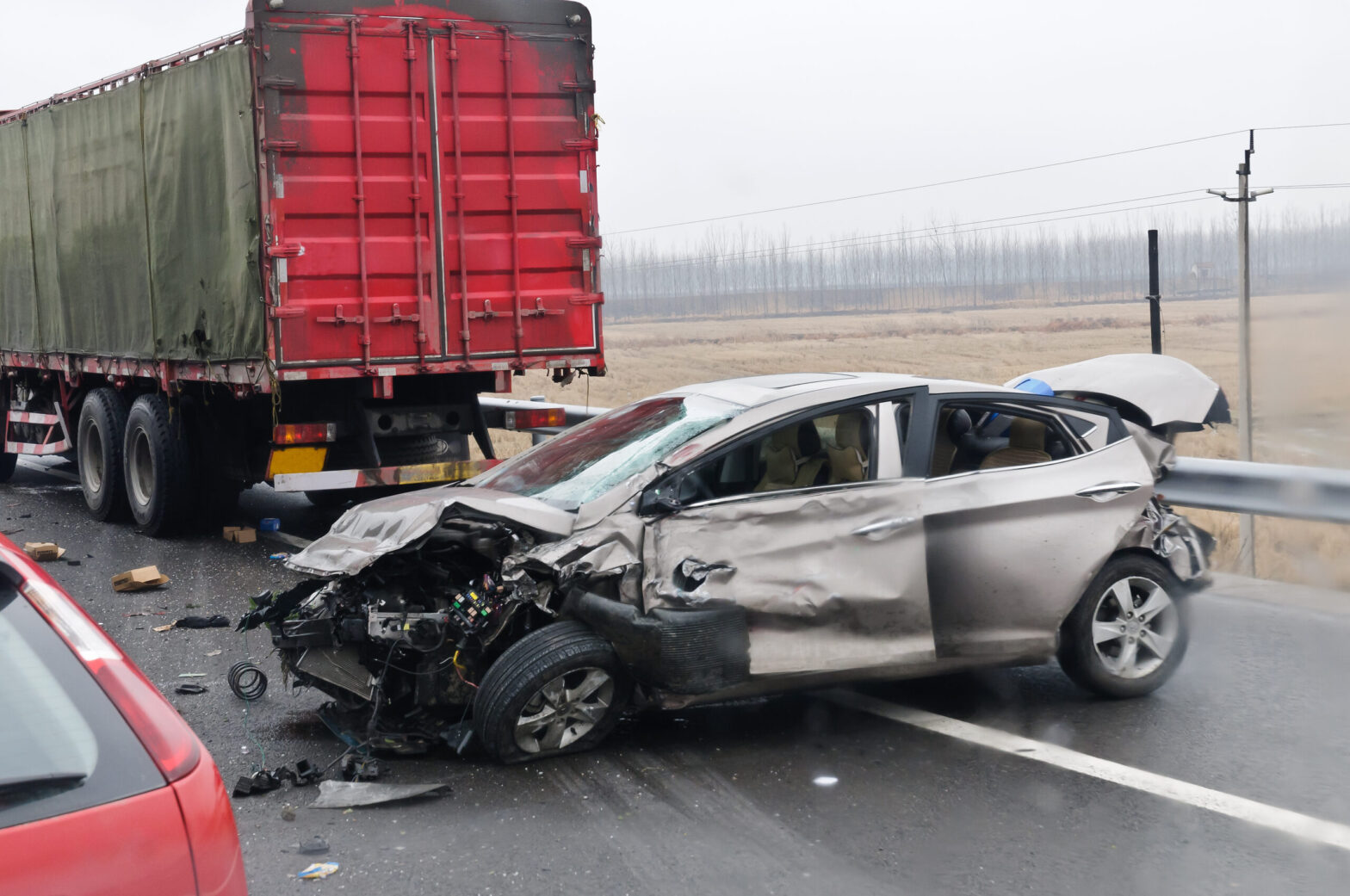
One of the most serious injuries anyone can suffer in an auto accident is a spinal cord injury. The National Spinal Cord Injury Statistical Center reports car crashes are one of the leading causes of spinal cord injuries. In fact, nearly 40% of the 17,800 annual spinal cord injuries in the U.S. are caused by vehicle accidents. While this represents only a fraction of the 2.3 million car accidents a year, the effects are devastating to those injured.
At Georgelis, Larsen & Sabatino Injury Law Firm, P.C., we have represented countless injury victims whose lives have been forever changed due to the negligence of someone else. If you have recently been in an accident, you should be aware of the following:
- Symptoms of Spinal Cord Injuries
- Types of Spinal Cord Injuries
- Compensation for Spinal Cord Injuries
Symptoms of Spinal Cord Injuries
Anyone involved in a vehicle accident with trauma to their head or neck should have a medical evaluation right away. It should be assumed they have a spinal injury until it is proven otherwise. Symptoms of spinal cord injuries after a car crash aren’t always obvious and come in many different forms, including one or more of the following:
- Loss of movement
- Loss or altered sensation, including the ability to feel heat, cold and touch
- Loss of bowel or bladder control
- Exaggerated reflex activities or spasms
- Changes in sexual function, sexual sensitivity, and fertility
- Pain or intense stinging sensations caused by damage to the nerve fibers in your spinal cord
- Difficulty breathing, coughing, or clearly secretions from your lungs
More serious symptoms can include the following, and require immediate medical attention:
- Extreme back pain or pressure in your neck, head or back
- Weakness, incoordination, or paralysis in any part of the body
- Numbness, tingling, or a loss of sensation in your hands, fingers, feet, or toes
- Loss of bladder or bowel control
- Difficulty with balance and walking
- Impaired breathing
- An oddly positioned neck or back
When these symptoms aren’t immediately obvious and are ignored, a more severe injury may result. It is important to understand that numbness or even paralysis may come on gradually as bleeding or swelling happens around the spinal cord. It is always best to seek medical attention to be safe, and so you have record of the injury in the event it becomes significant and you need it for a personal injury case.
Types of Spinal Cord Injuries
If, after an accident, you are exhibiting signs of a SCI, your doctor will first classify it as “complete” or “incomplete.” Doctors use the American Spinal Injury Association grading scale to evaluate nervous system function and sensation to best diagnose the type of injury.
Incomplete spinal cord injuries involve a partial loss of function or sensation below the neurological level of injury (which is the location of the injury along the spinal cord).
Complete spinal cord injury causes a total loss of function and sensation below the neurological level of injury.
Incomplete spinal cord injuries involve excessive inflammation of the spinal cord after some type of trauma. A car accident victim, for example, could experience a spinal cord injury that causes arm or leg weakness, partial loss of bladder function, and/or other related symptoms for a period of time after the impact. Often, but not always, these types of SPI heal in time, with restored function and sensation.
When most people hear the words “complete spinal cord injury,” they believe the spinal cord has been cut in half, but most often that is not the case. Most typically, it means the spinal cord has become so severely damaged that it cannot repair itself, often because of a serious dislocation or fracture of the vertebrae.
When a Spinal Cord Injury Leads to Paralysis
If the spinal cord is damaged through a spinal cord injury, it can cause a disruption of signals to areas of the body and potentially result in paralysis. Paralysis is a temporary or permanent loss of muscle function in part of your body and can be generalized, partial or complete.
Doctors classify paralysis in many different ways:
Location
Location paralysis affects only a single part of the body, such as your face or hand. Generalized paralysis is a group of conditions that impact multiple body parts, including:
- Monoplegia –affects one arm or leg
- Hemiplegia – impacts one arm and one leg on the same side of your body
- Paraplegia –affects both legs
- Quadriplegia or tetraplegia—impacts both arms and both legs
Severity
If your doctor diagnoses you with partial paralysis, you will have some control over the muscles in the affected body parts. Complete paralysis means you’ll have no control over the muscles in the affected areas.
Duration
In many cases, paralysis is temporary. Strokes for example can lead to Bell’s palsy, a condition that can cause temporary paralysis of your face. Strokes can also temporarily paralyze one side of your body. Many people, with time and treatment, regain some or all of the feeling and coordination they lost.
Flaccid or Spastic
Flaccid paralysis is when the muscles shrink and become flabby, which results in muscle weakness. Spastic, on the other hand, involves tightening and hardening of the muscles, causing them to twitch uncontrollably.
Stroke is the leading cause of paralysis in the United States, accounting for nearly 30 percent of all cases. Spinal cord injuries from car accidents, accidents on the job, sports accidents and other trauma to the brain and body account for 23 percent of cases.
Compensation for Spinal Cord Injuries
Spinal cord injuries can be debilitating, changing a person’s life forever when it comes to their physical, emotional, and financial well-being. Given the damage that can result from a spinal cord injury, a personal injury claim brought to procure compensation must be highly specific to the needs of the victim and the injured one’s family, as well as comprehensive to ensure that these needs are met long-term.
As such, the treatment needed for these injuries can last a lifetime and be very expensive. Many victims of spinal cord injuries can’t return to work or take care of their loved ones the way they once did. Compensation is available in the form of reimbursement of your medical expenses, the costs of ongoing care, lost wages, loss of earning capacity or a recovery for a diminished earning capacity, and the pain and suffering associated with the injury. Loss of consortium claims can also be brought by certain family members to make a financial recovery for the loss of comfort, guidance, support and other services caused by the injury to their loved one.
If you or someone you know has been injured in an accident, call Georgelis First for a FREE CASE REVIEW at 717-394-3004. At Georgelis, Larsen & Sabatino Injury Law Firm, P.C., we have experience helping clients who have suffered a spinal cord injury, and from the moment you hire us, we will begin working for you! From investigating the scene of the accident, to standing up to the insurance companies to protect your rights, to your medical bills and paperwork, we will be with you every step of the way!
When you call Georgelis, Larsen & Sabatino Injury Law Firm, P.C., you never pay out of pocket. We work on a contingency basis and only collect a fee when we win money for you! So please, give us a call. If you can’t come to us, we will come to you. Whether it’s your hospital bed, your place of work, or your home—we make ourselves available to you 24/7. Our aggressive personal injury attorneys have helped victims recover more than $60,000,000.00 for their lost wages, medical bills and pain and suffering, and we can help you too!





